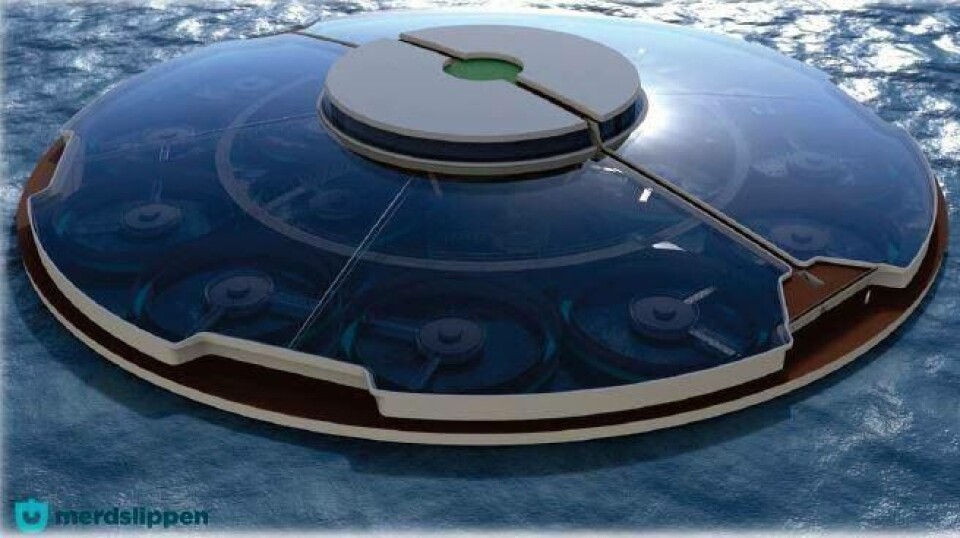
Norway backs floating RAS farm with eight permits
A floating closed containment fish farm concept has been given eight development permits by Norway’s Fisheries Directorate.
Start-up company Reset plans a closed recirculating aquaculture system (RAS) facility comprising a circular floating steel-framed structure, an operating platform and 18 fish tanks.
The centre of the flying saucer-shaped construction will contain feed silos, water treatment and sludge collection systems as well as other necessary facilities.
18 tanks
Six tanks will be placed in an inner ring around the centre, with a further 12 tanks in an outer ring.
Reset applied for 10 development permits for the 12-year project, which would have a maximum standing biomass (MTB) of 7,040 tonnes of salmon.
However, the Fisheries Directorate pointed out that each permit allowed the developer to have up to 780 tonnes MTB, and that 10 permits would add up to 7,800 tonnes, which was more than it could authorise.
Technical test
“The application states that the maximum biomass at full production in the plant will be 7040 tonnes (9.03 permits). As the Directorate of Fisheries cannot grant more permits than what is required to be able to carry out adequate testing, the Directorate will be able to allocate a maximum of 7040 tonnes of MTB to the project,” it stated.
In the opinion of the Fisheries Directorate, eight development permits will be sufficient for a technical test of the concept, while at the same time providing a sufficient financial risk relief for the project.
Development permits allow concept developers to offset the costs of their projects by getting cheap, temporary licences to grow salmon. These can be converted into permanent licences at a relatively low cost if the concept proves successful.























































